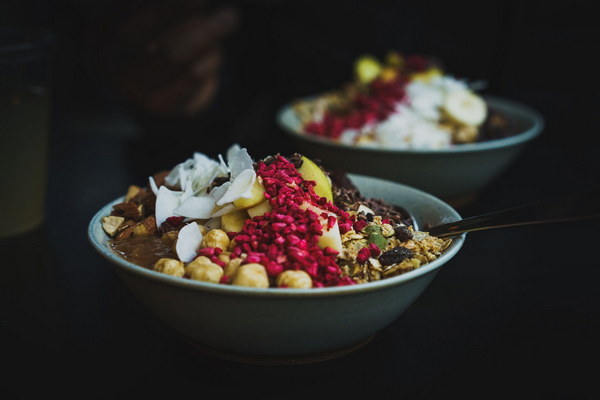Nourishing Sleep A Guide to Traditional Chinese Remedies for Children's Insomnia
Introduction:
Insomnia is a common issue among children, often leading to frustration, irritability, and poor academic performance. Traditional Chinese Medicine (TCM) offers a holistic approach to treating children's insomnia, focusing not only on symptom relief but also on addressing the root causes. This article explores the benefits of TCM in managing children's sleep issues and provides a comprehensive guide to nourishing foods that promote restful sleep.
Understanding Insomnia in Children:
Insomnia in children can be categorized into three types: transient, short-term, and chronic. Transient insomnia is temporary and often resolves on its own, while short-term insomnia can last for several weeks to months. Chronic insomnia, on the other hand, persists for more than three months.
Common causes of insomnia in children include:
1. Stress and anxiety
2. Environmental factors such as noise, light, and temperature
3. Diet and lifestyle habits
4. Medical conditions like ADHD, asthma, or allergies
Traditional Chinese Remedies for Insomnia:
TCM views insomnia as a result of an imbalance in Yin and Yang, the two fundamental forces that govern the body's functions. To restore balance and alleviate sleep issues, TCM practitioners may recommend a combination of herbal remedies, dietary adjustments, and lifestyle changes.
1. Herbal Remedies:
- Herbs such as valerian root, chamomile, and passionflower are known for their calming properties.
- Other herbs like Goji berries and jujube seeds can help nourish the heart and promote peaceful sleep.
- A popular TCM formula for children's insomnia is Suan Zao Ren, which combines several herbs to nourish the heart and calm the mind.
2. Dietary Adjustments:
- A balanced diet rich in essential nutrients can support the body's natural sleep cycle.
- Foods that are high in magnesium, such as almonds, spinach, and dark chocolate, can help regulate sleep.
- Foods rich in calcium, like dairy products and leafy greens, can also improve sleep quality.
- Avoiding stimulants like caffeine, chocolate, and sugar before bedtime is essential.
3. Lifestyle Changes:
- Establishing a regular sleep schedule can help regulate the body's internal clock.
- Creating a relaxing bedtime routine can signal to the child's body that it's time to wind down.
- Encouraging physical activity during the day can help children fall asleep more easily at night.

Nourishing Foods for Children's Insomnia:
1. Millet Porridge: Millet is a nourishing grain that helps calm the mind and promote relaxation. Combine it with goji berries and a small amount of honey to create a soothing bedtime snack.
2. Jujube Seed Tea: Soak jujube seeds in hot water for several minutes, then strain and drink the tea. This tea is known for its calming and stress-relieving properties.
3. Banana and Almond Smoothie: Blend ripe bananas with a handful of almonds and a splash of milk for a nutritious and calming smoothie that can be enjoyed before bedtime.
4. Honey and Oatmeal: Mix a tablespoon of honey with a bowl of warm oatmeal for a cozy, soothing bedtime snack that can help children drift off to sleep.
5. Banana and Cinnamon Toast: Spread almond butter on slices of whole-grain bread, top with sliced bananas, and sprinkle with cinnamon. This breakfast option can provide a warm, comforting feeling that promotes relaxation.
Conclusion:
Insomnia can be a challenging issue for children, but with the help of traditional Chinese medicine and nourishing foods, it is possible to find relief. By focusing on dietary adjustments, herbal remedies, and lifestyle changes, parents can help their children achieve restful sleep and improve their overall well-being.









